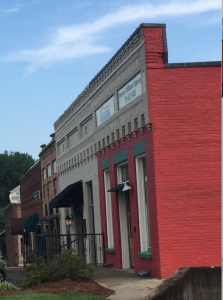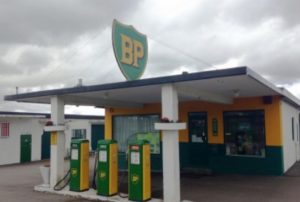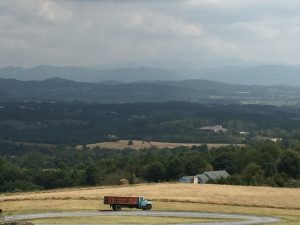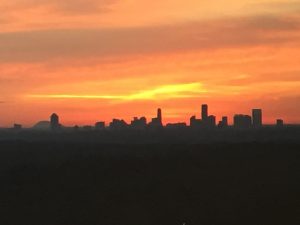
Robbinsville Pool Hall
Dogs are man’s best friend. Dogs sit, stay and roll-over. Dogs listen, discern, and are people-centric except when they’re sniffing their fellow-dogs most fragrant parts. Some dogs are so-called pure-bred and lots of dogs are mutts. Give me a good mutt over purebreds that are inbred, and give me a great disposition over a frantic tail-chaser.
Our camping assortment of dogs – two chocolate Labrador retrievers, owned by one Mr. Carson, one dark orange Golden retriever, owned by Mr. & Ms. Busbey, one retriever-terrier mix pending road-kill rescue named Roadie, saved by Mr. & Ms. Goodman. And finally last but certainly not least, the proud offspring of an international show winner, one light Golden retriever named Molson. After-all, if your coat is the color of a light pilsner beer and your human mother is clever, you might end up with a name like Molson Golden. And please note a Molson Golden cold brew is worth a taste if you’ve not previously indulged in one of Canada’s best exported goodies.
In a field of field-worthy dogs, each of our four legged companions held his own. Stature and demeanor was a plus in each. Tail wagging and cooperation was high. Clearly a laid-back pack with no alpha-dog insistence.
Then there was dog royalty. Descended from a supreme lady of the ring, a renowned champion – Molson the Golden. Fellow hikers, walkers, neighbors in unison acclaimed his incredible draw. The leader of the pack with an unforgettable coat and perfect lines, broad brown eyes set atop a perfectly proportioned snout. But it was the luxurious coat, long, soft as a baby’s bottom and wavy with a color of light sunshine that stole the show. A dog to catch the eye and make you smile – Molson – a loving companion who knew no enemy and drew all to his side to be pet in admiration. Molson the pick of the litter and a show in and of himself. Intelligence to the point of fetch and release, though he lacked a big vocabulary, but never lacked in love. His head was the size of a one-year old, and his tongue would cover their face. Molson, a licking, wagging, charismatic pooch.
We walked into the pool hall with our dogs and momentary caution. Checking our surroundings and checking the native Robbinsvillians, we stepped into another realm. Greeted by the bartender – who could only offer sodas and leathery hot-dogs – with a ‘hey there,” we filtered around the outer perimeter of the three pool tables. Two were clearly in better shape than the one furthest from the entrance, and had some pretty focused action. Our worst fears, high-strung locals hell-bent on winning or fighting, appeared to be a false alarm as there was little jawboning between the competitors. In fact, the PacMan video machine and Superman pin-ball sitting in the back corner added more audio ambiance. While the PacMan said “wacha, wacha – gulp” Superman pinball exclaimed “ping-pi-ping-ping—boing,” launching Superman further into the stratosphere with each paddle strike of the silver ball.
“Howard, do you play pool,” I asked. “Absolutely, we used to have a table in our house when I was young.” “So did we!” I said, remembering how my older siblings told me I was too little to play. Nothing a cue-stick bridge and determination couldn’t overcome. Our challenge, finding a table-opening. Men clad in overall and plaid surrounded the tables – racking, breaking, passing time in a stress-free environment. I was thinking how an opening might occur when a Coca-Cola craving kicked-in. And wouldn’t you know it, one of the more grizzled veterans of the felt-top tables snapped his pool cue back in its wall holster. “Jimmy, you want a cigarette or a Coca-Cola,” a stringy, mousy brown haired late forties professional drawler said to his pool partner. “Neb, ain’t no break worth taking till you done got both,” said Jimmy. “Yep, I reckon you right about that Jimmy. Miss May, couple fountain Cokes please,” asked Neb, all one-hundred twenty pounds of him. Neb was down-right wiry, long-arms unusually bony and large, vein-protruding hands. It was as if Neb performed curls with each finger to build grip strength, while the rest of himself just looked on. His hands had their own existence at the end of Neb’s arms – a sharp breaker of the rack, nimble maneuvering of strategic spin on the cue ball, always leaving the easy shot, Neb nearly ran the table in the few short minutes we meandered around his stage. A result of those crazy strong and swift Neb fingers – he could extract a cigarette like Doc Holliday could draw a pistol – fast. And his trigger finger on a lighter – smooth. Jimmy and Neb started puffing, smiling, stifling us with smoke. They were surrounded with an aura of pure manhood as though they’d caught their fly-fishing limit in the swift waters of a deep black Montana rapid.
While Jimmy and Neb, the kings of the table, got high on nicotine and caffeine – not to mention processed sugar cane that triggers the need for more nicotine and caffeine – Howard and I jumped at the table-opening. “Can we join y’all,” Howard asked the two remaining players. “Course. Wanna break?” came a quick retort from a measured eye. “Campbell,” said the keen observer as he extended his hand, “and this here is Jake,” added Campbell. “Good to meet you. This is Howard and I’m David.” We managed to shake hands without knocking over any ashtrays, breathed in between the smokiest air pockets, and grabbed a stick. Though I loved the sharp crack and percussion of racking & breaking to begin the game, I knew Howard had more leverage and length. “Howard, crack ‘em open” I said. Howard could have been a multi-sport star but focused his talents on the tennis court where he carved a wicked left-handed kick serve. His so-called American twist serve won him many a high-ranking match, and resembled world top-ten John Isner’s second serve, which at its apex is untouchable. Given my recollections, and knowing Howard still played a bit of pool, I figured he could carry my rusty, poor excuse for a pool player-ass, to victory.
As Howard applied chalk to the tip of his pool cue, I glanced around the pool hall. Everyone was engaged in conversation, unconscious of the cigarette smoke trail (no smokeless cigarettes in these parts) that crept along like the Mississippi river just over our heads. This noxious vapor cloaked the old fashioned light fixtures hanging from the ceiling. I couldn’t tell if the bulbs were white or yellow as light emanated thru the fumes.
Then suddenly a shot rang out just as the force of Howard’s break nearly split his pool stick. As the cue-ball concussed the other billiard balls, the patrons all froze. An uncomfortable moment passed as all realized no gun had gone off, just the short explosion of a high crack, followed by balls rolling this way and that – bumping every side bumper, bumping each other, with one finally settling into a corner pocket. “Stripes,” Campbell called out, our team had knocked in a striped ball. Howard followed his opening volley quickly, setting up on the left flank and notching the second ball for our team in the opposite corner. Emboldened, Howard was walking before his shot fell and set up to the where he knew the cue ball would next reside. Another quick stroke ensued, his eye using the pool stick to line up the next shot like a quail hunter sights his prey with the barrel of a twenty-gauge. Another ball fell in the side pocket. We, or I should say Howard, looked confident. A pause followed as Howard asked for a lighter for his cigarette which seemed to appear from nowhere. I then noticed Neb putting his cigarette pack back in his shirt pocket. Howard drew a breath, squinted his left eye and mumbled something to Jake that I couldn’t quite make out over the music. Willie Nelson’s hit, Mamas Don’t Let Your Babies Grow Up to be Cowboys – one of the longest song titles in history – drowned out their conversation.
I looked over at Campbell, leaning against the railing of the half-wall that separated the front soda fountain and rear game room. He was clearly in no hurry, just keen on trying to discern where the heck we’d come from. “Where’d you say you from,” he asked, walking over by my side. “Not sure I did. We’re all up from Atlanta. Looking forward to some hiking,” I started to say we were headed to Joyce Kilmer Memorial Forest in the morning, but somehow thought better of it, sensing Campbell could care less. “Atlanta you say. Bit a traffic down there these days?” he asked. “Yeah you might say that. Guess we’re a bit immune to it by now, seems to come with the territory.” He then said “territory, what territory you in?” to which I think I replied, “ah, sorry, just an expression of speech,” which didn’t seem to register with Campbell as he continued to scan the room. Campbell’s eyes lowered, noticing our dogs.
Howard, cigarette resting in an ashtray, stepped back up. Just as he drew his stick back, a distraction intervened and alas, Howard grazed the cue ball…and nearly scratched. The distraction – a fervent slap on the back with a loud, cantankerous “Jimmy! You done for boy! Your momma gone wear your hide out! Git on home now, lickity split!” The warning to Jimmy came from a long-bearded furrowed brow – one where you see the eyebrows meet in the middle, outside edges turned-up, squint tight – an expression that says “I mean business!” Jimmy practically swallowed his cigarette whole, but managed to spill some Coca Cola into his mouth with a piece of ice to douse it. His first step was quick as a wink toward the door, but he wasn’t through it before the bearded one said, “your Momma gonna whip you back into shape, but your hide is mine tomorrow. Damn cigarettes, killers, even a sixteen year old will choke to death, you have enough of ‘em.”
Jake’s turn, and what a turn it was. I spectated while Jake ran a half-dozen solid balls into every pocket on the table. Campbell however, spectated differently. I noticed he kept looking at our dogs, the Chocolate Labs, Roadie, Bart, the skinny dark golden, and Molson, who stood next to me wherever I turned. Then finally we caught a break, as Jake missed a sure shot if he didn’t hammer it so much.
As I stepped up, eyeing a striped ball corner-pocket leaner, I prepared to shoot. While setting up, my sixth sense noted Campbell was within about a foot of my left ear. He was close enough for me to hear him inhale “mmm,” as he drew a deep breath, then said, “Whut kinda dawg is dat?” I noted Campbell was staring at Molson, and looking very perplexed. His expression included a slightly protruding lower lip, a puzzled sliding of his eyes left then right – not looking at anything but clearly trying to search his memory banks for a clue. “Golden Retriever,” I answered. Then after recalibrating my shot, I sent the cue ball sharply to nudge in the leaner, in hopes it would return to my end of the table to help line up the next shot. As the white ball settled close-by, I knew the fifteen ball needed to drop next. But before I could set my sights, Campbell, with a mild tone and diffused-eye look, surrounded my right ear with his close-talking presence. He stated matter of factly, “Rutreever you say!” clearly having never set eyes on a purebred of such distinction. I think I may have sunk the shot, but the result was inconsequential. The important thing was to remain respectful, say “thank you” when told “good shot,” and to realize no dog breeders lived within a hundred miles of Robbinsville. A mangy mutt was a damn good dog around here. A purebred show-pony Golden Retriever – though pet royalty to our little interloping group – was a canine foreigner, an unfamiliar and unacceptable concept in this neck of the woods.
As soon as Howard and I prevailed, thanks almost entirely to Howard, we shook hands with Campbell and Jake, then skedaddled out the door with our group. Escaping any more questions from Campbell, fresh air greeted us. The dogs, apparently feeling we’d been victorious, did a victory lap by marking some main street territory on the way back to the Inn. We ended the night by quietly smuggling the canines into our rooms. Sleep came quickly, despite a squeaky mattress wrapped in plastic with an old non-fitted sheet on top. The drive, overeating and competition had taken a toll.



